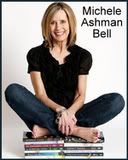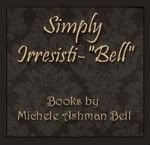 Darcy and Clare grew up as best friends, sharing trials and triumphs from preschool through college graduation. Now they're sharing an apartment in Boise, Idaho, where Clare just landed a great job and Darcy is pursuing a teaching certificate. There's only one problem: Blaine, Clare's boyfriend. His chauvinistic, know-it-all ways set Darcy's teeth on edge. Darcy vows not to let Blaine ruin her lifelong friendship with Clare, but when Blaine insists on moving in, Darcy suddenly finds herself alone.
Darcy and Clare grew up as best friends, sharing trials and triumphs from preschool through college graduation. Now they're sharing an apartment in Boise, Idaho, where Clare just landed a great job and Darcy is pursuing a teaching certificate. There's only one problem: Blaine, Clare's boyfriend. His chauvinistic, know-it-all ways set Darcy's teeth on edge. Darcy vows not to let Blaine ruin her lifelong friendship with Clare, but when Blaine insists on moving in, Darcy suddenly finds herself alone.The estranged friends forge ahead on seemingly separate paths. Engaged to Blaine, Claire becomes trapped in ugly family politics and vicious treatment from her finance. Darcy finds a temporary home with Karlene, an accident victim seeking live-in help, but a twisted plot soon threatens their safety. Clare's wedding briefly reunites her with Darcy, yet the friends have never been farther apart. And when Clare finds herself in mortal peril and finally calls upon Darcy to help, it might be too late.

Jennie Hansen is a a beloved and well-known author of LDS fiction whose publications include newspaper and magazines articles, news stories, editorials, short stories, reviews of other LDS author's work, and numerous novels. She also is a frequent speaker at firesides, conferences, and literary groups.
Jennie was born in Idaho Falls, ID and was first published at the age of seven. She received an associate degree from Ricks College (now BYU-Idaho). She is also a graduate with a BA from the Westminster College in Salt Lake City, UT. Her past occupations have been an editor and newspaper reporter for a weekly newspaper and occasionally wrote articles for a daily newspaper. She worked for the Utah State Legislature before being employed as the circulation specialist for the Salt Lake County Library System.
I have great love and admiration for Jennie. She is a true friend and a great advocate for LDS fiction. Her books have set the bar for LDS fiction equal to that of the national market and her fan base covers anyone from truck drivers to women of all ages. I'm so proud and pleased to share her interview with you.
M.B.: When did you first know you wanted to be an author?
Jennie: When I was seven and had my first little article published in a farm magazine.
M.B.: What was the pathway like for you to get your first book published?
Jennie: I had been a newspaper reporter and had a long list of magazine credits before I ever wrote a book. When I decided to try getting a book published, I submitted three manuscripts to a New York publisher. One was rejected, but the editor was interested in the other two, but wanted me to make some changes I wasn't comfortable with. While I was deciding whether or not to make the changes I met an editor from an LDS publishing house, who invited me to submit one to her. I did, she offered me a contract and I took it. I've been publishing with Covenant ever since.
M.B.: Were you ever discouraged along the way? If so, how did you deal with it?
Jennie: When I wrote my first books, my computer was in the kitchen and I had five teenage children and a full time job. The sheer workload was discouraging, but not as bad as when my children were small and I was a news reporter. Those times when I had to condense a book for the CD, received a smaller than expected royalty check, couldn't find the bit of research I needed, when I had to come home from work and write until midnight and get up at five and write until I had to leave for work again to meet a deadline were discouraging. I'm not sure how I dealt with discouragement. I guess I just kept going and did what needed to be done and somehow got through it.
M.B.: What is your writing schedule like?
Jennie: Because I no longer have to go to a job, I write as much as I want to on the days I'm not at the temple or other necessary tasks like mopping my kitchen floor and grocery shopping aren't calling my name.
M.B.: Where did your idea come from for this book?
Jennie: As a newspaper reporter, as a friend, and at my former job, I encountered women who had endured terrible abuse by their husbands or boyfriends. I taught a Relief Society lesson once that dealt with the topic of abuse. Following that lesson I was asked to speak to other groups of women on the subject and after each talk, at least one woman who tell me her story of abuse. When a woman I befriended at work found it necessary to simply disappear and change her identity in order to escape her abuser, I knew I would one day write a story about abuse and about friendship.
M.B.: What words of advice do you have for other writers who desire to
have their manuscripts become books in print?
Jennie: READ! Writers who aren't readers write boring books. WRITE! And I mean every day. Invest in a good unabridged dictionary and a thesaurus. Finish what you start, set it aside for awhile--months--then reread and fix. Join a critique group and some sort of writers' group that includes workshops, meetings with training, online helps, etc. Submit your work, then start a new writing project while waiting for a yes or no on your submission.
M.B.: What is your process of brainstorming a story? Do you just sit
down and write, waiting to see what happens next? Or do you outline
first?
Jennie: I do a little of everything. Sometimes I outline, sometimes I don't. I always did at first. I keep a notebook with the names and descriptions of every character I use. When I write an historical novel I have to keep a dateline chart too. Sometimes I write a scene or chapter that is pivotal then set it aside to insert later.
M.B.: Do you ever experience a snag in a story, a form of writer's
block? If so, how do you deal with it?
Jennie: I clean house, work in my garden, go for a walk, or talk the problem through with my husband or one of my daughters. Sometimes I just write anyway and the problem usually works out as I go even if I have to delete much of the attempt.
M.B.: Do you need absolute quiet to write? Do you listen to music when
you are writing?
Jennie: I like quiet, but I can and have written under some noisy circumstances such as a dozen teenagers in the next room watching TV or playing the piano. A news room isn't exactly a quiet place either. I find listening to music annoying when I'm writing.
M.B.: What kinds of inspiration do you use during your story creation periods?
Jennie: Whatever comes along. I study, I pray, I listen to other people talk, I read newspaper articles, I draw on news stories and experiences from the past, and I play the what if? game a lot.
M.B.: Who has made the greatest difference for you as a writer?
Jennie: My high school English seminar teacher first guided me to look for form in writing and encouraged me to develop my own style. Kathy Lloyd, an adult education teacher and romance writer, taught me scenes and sequels and how to outline a novel. My husband has given me time and space to write and been my most avid supporter.
M.B.: Do you use a critique group during the writing process? Why or why not?
Jennie: I did when I first started writing and it was an invaluable experience. Now two of my daughters, my editor, and a close circle of writing friends who stay in touch online are pretty close to a critique group.
M.B.: Anything about yourself that you would like readers to know about?
Jennie: I have both a web page www.jennielhansen.com and a blog http://notesfromjenniesdesk.blogspot.com
M.B.: Any final words you would like to share?
Jennie: I love to hear from readers. You can contact me on my blog or through my publisher.
M.B.: Where can our readers go to find your books and order them?
Jennie: They're found in most book stores that carry LDS books. You can order them online through either Seagull Book or Deseret Book.



























































-page-001.jpg)














10 comments:
Interesting interview, Michelle. Thanks for sharing!
Thanks for the interview. I have read many of her books and enjoy them, as I do yours. She happens to be in my brothers ward and is a terrific lady!
Great interview and review. The book sounds like a must-read and it was fun getting to know the author
Im so glad I found your blog. I love the interviews since its opening me up to new authors. Thanks again!
Michele
Wonderful interview, Michele & Jennie. You are both talented writers and exemplary women & friends.
I'm a fan of both Jennie's work and yours, Michelle, and I found the questions amd answers about the process of writing and "maintaining a life while writing" cheerfully familiar. "Shudder" sounds like a white-knuckler. Thanks for a great interview and preview.
Thanks for the interview with Jennie! I love to read both Jennie and Michel's books. You are both wonderful and talented women.
Thanks, Michele. Jennie is such a great person and writer. I've enjoyed being a reader for several of her audio books. And what she does to promote LDS fiction and writing in general is fantastic!
Oooo, (shiver) that book cover will probably haunt my dreams tonight!
I LOVE her work. Welp, I guess I am off to the book store to add to my library.
Post a Comment